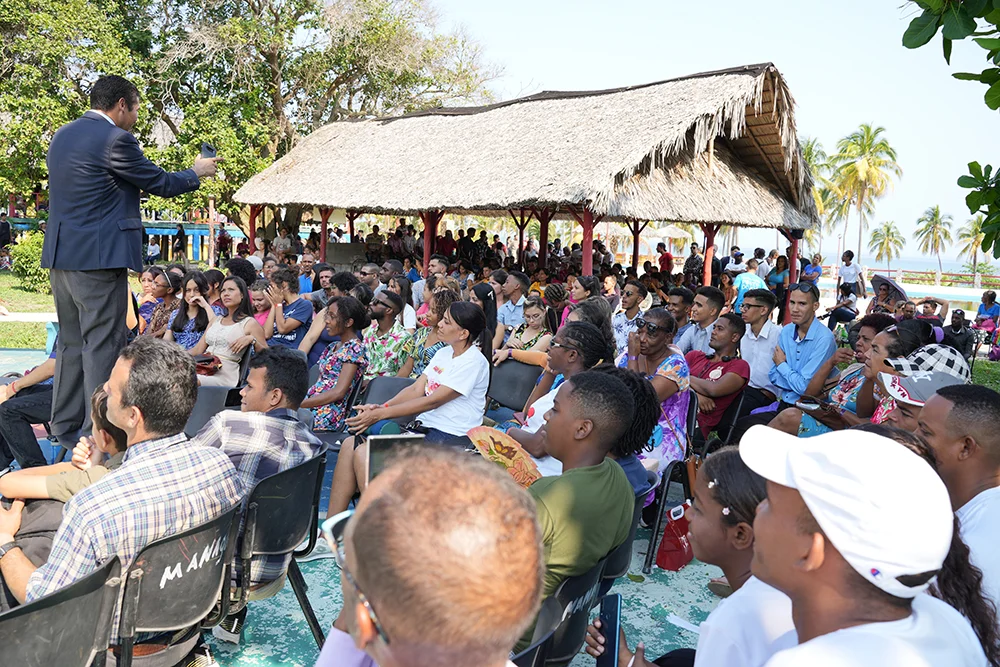
The Seventh-day Adventist Church in Cuba is doubling its efforts to equip young people in response to the emigration of a large number of pastors and local leaders in recent years. Before the COVID-19 pandemic, the emigration of pastors and church leaders was a regular occurrence, but the number has grown to an unprecedented level since then, local church leaders said.
“Between 2021 and 2023, the multidimensional crisis on the island accelerated migration, something that has affected the Adventist Church here,” Aldo Pérez, Cuban Union Conference president, said. “We have lost valuable pastors and local leaders.” In 2023 alone, 29 pastoral families left the island. Since 2021, a total of 44 pastoral families have left their post. That represents a third of the pastors who lead at the union, conference, mission, and local church level, he said.
Pérez said this is nothing new. In 1980 the church lost more than 100 church workers. He calls the present situation the “post-COVID crisis, when the economic situation has become more difficult and critical here.” He added, “Many of our brothers and sisters, and many workers as well, are looking for better ways to support their family members and children, and that hits us as a church, but we praise God that in the midst of this situation, in the midst of this crisis, many new believers are joining the church looking for refuge and hope in God.”
An Emergency Training Program
The pressing situation forced leaders to implement what they call an emergency program to train new leaders. “We have a young leadership in the church, and we must equip them well so that the church can move forward with its missionary work,” Pérez said.
To face the challenge of losing so many pastors and local leaders, administrators have strategized to train 7,000 youth, including 3,500 new Master Guides and 3,500 Adventist Youth (AY) leaders across the island.
“The goal is to accelerate the processes and produce trained and motivated leaders to serve at greater speed and quantity than the migration pulls,” Ray Frometa, Youth Ministries director of the Cuba Union, said.
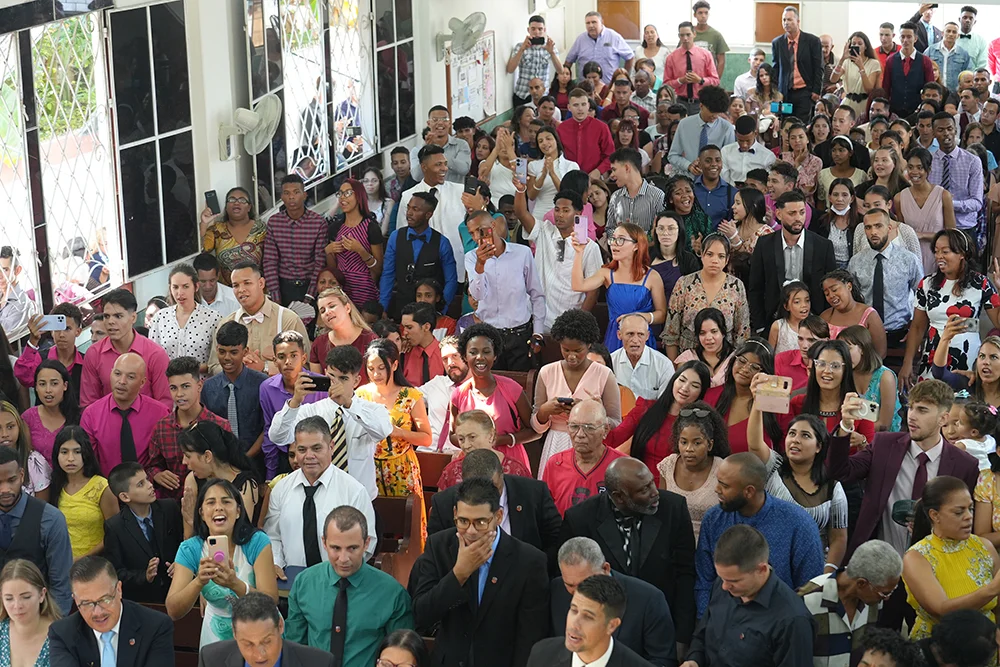
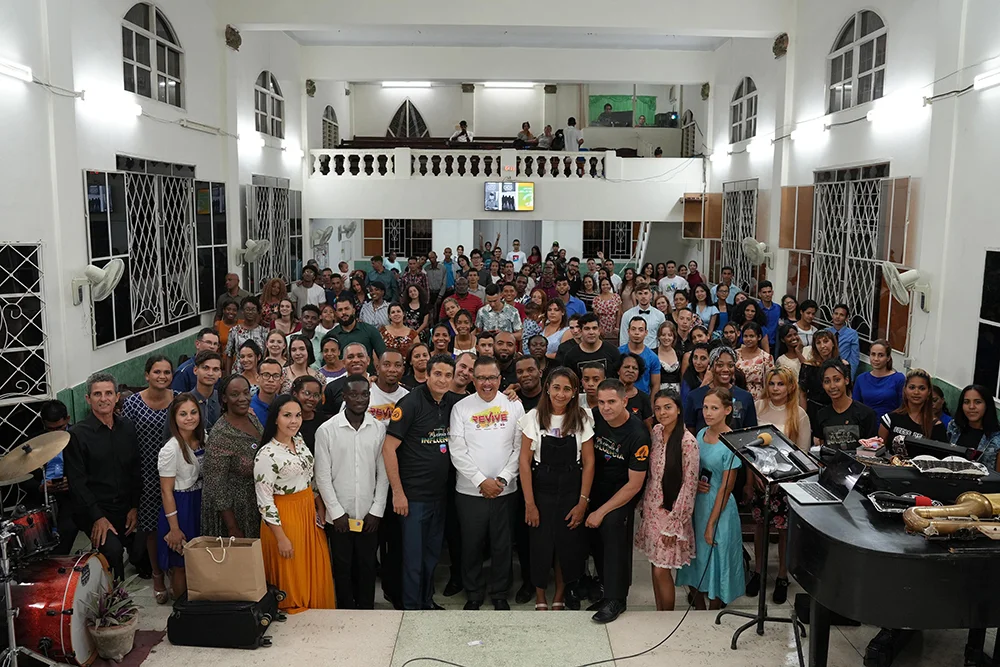
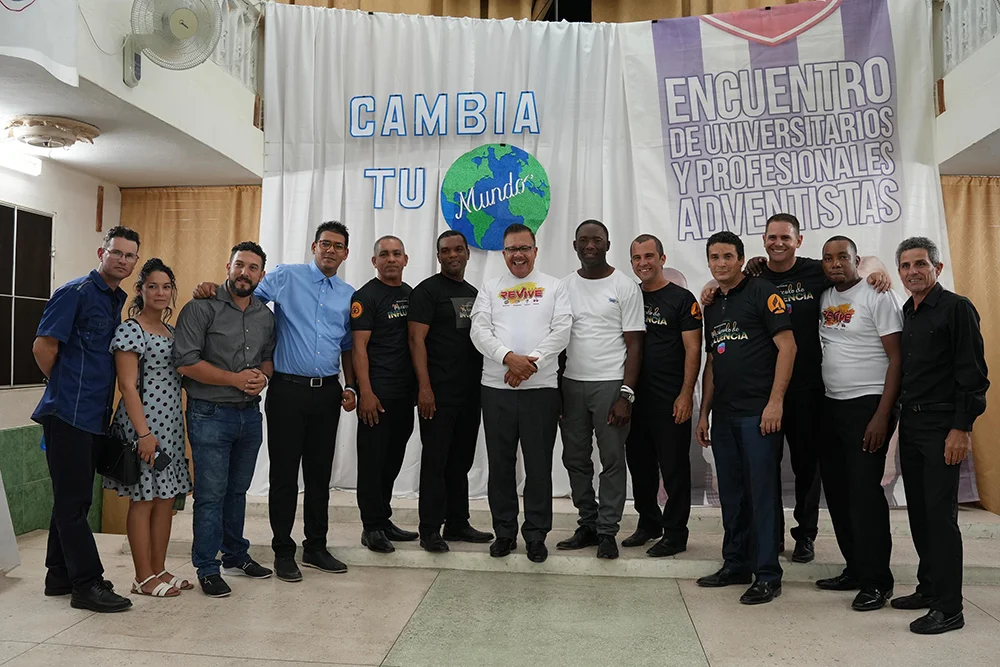
Recruiting and Training Strategy
The fast recruiting and training of new leaders is the new strategy, but the vision of the church in Cuba has always been to focus on equipping leaders continually, he said. Initiatives planned for the current quinquennium have included training some 300 young people in 2023 to become instructors in each conference, appoint a Master Guide and AY leader in each district, provide a youth ministries institute online, and train local church leaders in each church to become youth mentors.
During a recent training of more than 500 youth leaders and Public Campus Ministries (PCM) students and young professionals in January, Frometa encouraged them to strive to make a difference for the Lord and never think or say that the best of the leaders left the country. “Those of us who are left are the ones whom God will use to finish the work,” he said. “God is calling and training you because this work is not about human talent but about the will and purpose of God.”
The Adventist Church in Cuba oversees more than 12,000 young people. About half are ages 6-15 and the other half 16-30.
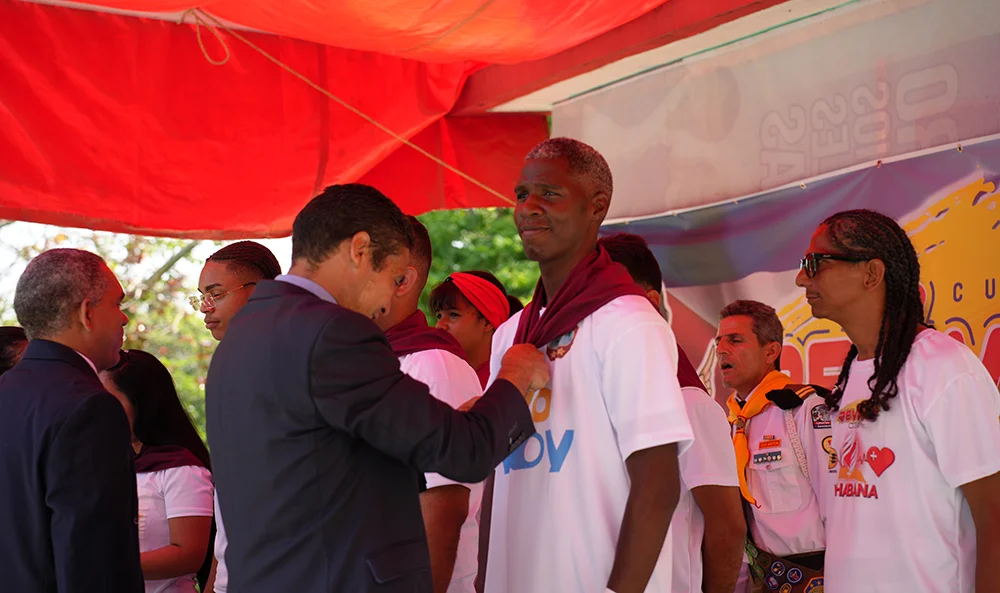
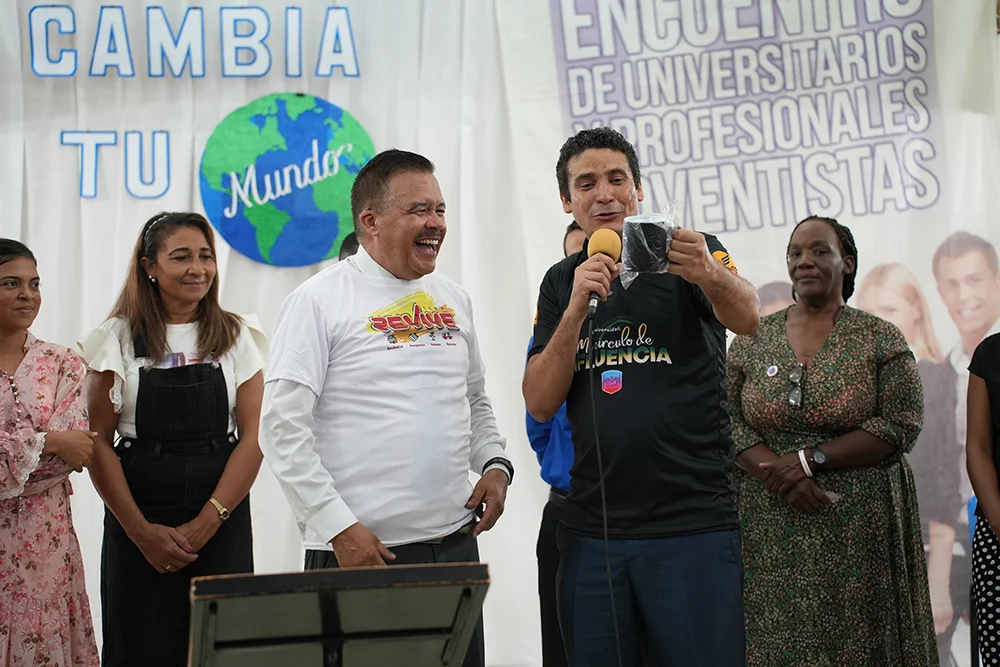
Strengthening Youth Leaders
As part of the strategy to restore leadership, a pastor has been assigned in each of the 20 AY Federations throughout the country. Each of them can directly supervise and lead in the process of recruitment and training of the new AY leaders and Master Guides, Frometa said. “They will have the mission of emphasizing the organization of the clubs and youth leaders as well as the mentoring program that would end up integrating them in the local leadership of the church.” It’s about recruiting the active nucleus of the church to work in favor of the youth and place them as a priority so the church can be rejuvenated as well, he said.
The youth leadership program always ran at a modest rhythm in the church, Frometa explained, but as designated associate youth ministries directors, the new leaders can take a more active role and help each local pastor to develop an intensive leadership program in each church district.
The youth ministries training that took place in Holguin in January taught the 30 new leaders to better understand their role. They also reviewed strategies, initiatives, and activities, and resolved to move forward together to serve the church as future youth ministries leaders, Frometa reported.
“Being part of a nationally coordinated leadership team, any one of them can continue working with the strategies set in place and be ready to face an eventual migratory vacancy in any of the conferences or missions in the country,” he explained.
Equipping Dedicated and Passionate Leaders
Honing young people at different levels and ministries of the church remains a priority and part of the ongoing strategy, Pérez emphasized. On January 12 and 13, nearly 400 university students, young professionals, and high school students gathered in Las Tunas for a PCM event, where they were reminded to cling to God and minister to others even amid the challenges they face each day. The PCM event included Hiram Ruiz, PCM director of the Inter-American Division, who encouraged the youth to let God lead in their lives and witness the positive changes they can make in the world around them.
Everything involving strengthening and training young people is important, Pérez said. The intent to train leaders must be more aggressive now, he added. “We need to continue strengthening the church in this area and try to revert the effects of this crisis that brought to light the fragility of the church,” he emphasized.
There is no shortage of miracles in Cuba, Pérez said. “God will continue to work more miracles here in Cuba, especially so that our trained youth leaders can continue to win other young people for the eternal kingdom.”
More than 40,000 Seventh-day Adventists meet in 546 churches and congregations in Cuba. The union conference oversees four conferences and two missions across the island.
The original version of this story was posted on the Inter-American Division news site.